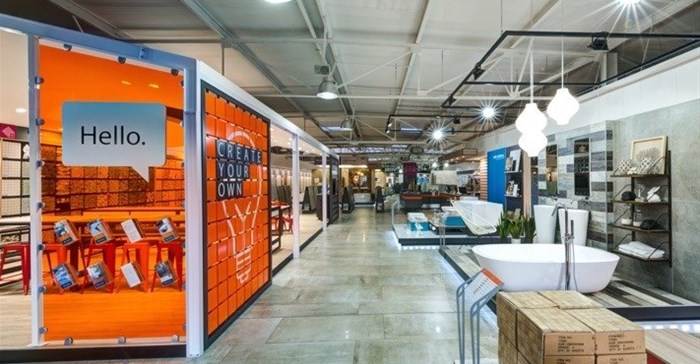
Top stories






More news

Marketing & Media
Ads are coming to AI. Does that really have to be such a bad thing?
















Adrian Morris, COO of DP, says the key challenge to working internationally is localisation, both in terms of design content and relevance within the new market. He foresees "a shift away from the cookie cutter to localised experiences, underpinned by the rise of local individuality, primarily driven by the fact that everything is everywhere today - the world has become non-differentiated, an ubiquitous sameness".
I asked Morris for a modern definition of design, from DP's perspective of 20 years in the industry. Here, we chat design in the retail and services market...
DP will not be participating this year due to international project commitments that the partners have to fulfil this year, which includes the opening of our Sydney office in the first quarter. Our Cape Town office will be attending.
Retail is an omnichannel business environment in which the role of design is not only to differentiate the bricks-and-mortar environment, but, more importantly, to fulfil a strategic role to integrate the social, cultural and economic drivers that underpin delivering a holistic and relevant experience for the customer.
The touch-and-feel factor is still the dominant purchasing decision factor for consumers, the importance of which, if anything, has been augmented even more through the growth of online retailing.
Retail and hospitality design sits at the convergence of business intent and customer expectation, which comes to life in the bricks-and-mortar environment.
Design can, thus, only help differentiate a product or service and enhance the customer experience through navigating this convergence through identifying opportunities for disruption that will resonate with customers.
DP is a business-focused, strategy-led design agency. Our focus is to align business intent with customer expectation.

Our ability to deliver a holistic and integrated retail and hospitality service through three core centres of excellence: Strategy, Design, Build.
The key shifts we have felt as a design business are:
The need for greater value add in all industries post the 2008 credit crisis has had the same impact on the retail and hospitality design sector. Designers are required not only to provide aesthetic solutions, but are also required to be more content driven, using tools such as design thinking to solve more complex challenges their clients are faced with. In the retail design sector, designers have had to become more integrated into their clients businesses, fulfilling a more strategic role in identifying disruption opportunities, and contributing towards delivering more curated holistic customer experiences.
Authenticity, not the post-modern definition, which was primarily driven by fake reproductions, but rather authentic experiences. A shift away from cookie cutter to localised experiences, underpinned by the rise of local individuality, primarily driven by the fact that everything is everywhere today - the world has become non-differentiated, an ubiquitous sameness. This is also driven by demand by consumers for transparency and ethics.
In order to achieve a more consistent consumer experience, i.e. product, retail and service experience, there is a case for the emergence of more vertically integrated retailers.
Greater investment in bricks and mortar and the growth of online has essentially triggered a growth in investment in bricks and mortar, driven by a focus to deliver a great store experience. Online will always trump on price, but bricks and mortar will always trump on experience.
Trading up will continue to be a strong trend driving retail. The middle class is continually looking for products and services that possess higher levels of quality, taste and aspiration.
The impact of prosuming is affecting more and more sectors, where effectively individuals are becoming more trustworthy than brands.
Last year was a year of consolidation, in which DP refocused its services into three core centres of excellence: strategy, design and build; in order to focus our services to the key categories of services required by our clients, both locally and internationally. In 2016 the focus is to export DP's services, and our office in Australia opens in April, with other territories under consideration.
The role of design agencies that are strategy led, business facing and customer focused will be vital to retail and hospitality clients in an environment that is becoming more constrained and competitive.
